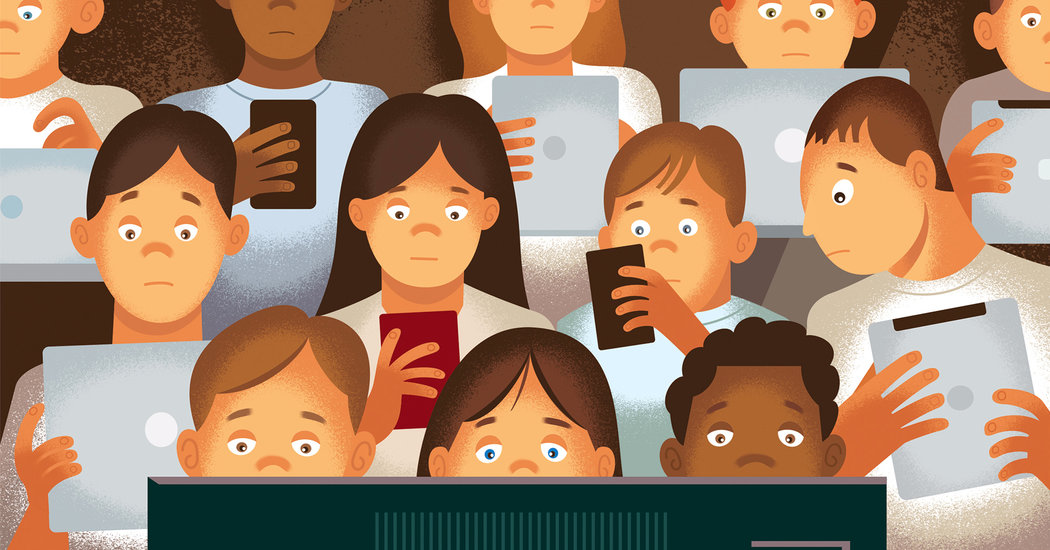- Study Says Most Parents Don’t Use Car Seats In Ride Share Vehicles Like Uber
- This 12-Year-Old Boy Is A Sophomore Aerospace Engineering Major!
- Fire Safety Experts Warn Of Hand Sanitizer Danger After A Mom and Kids Escape House Fire
- Recall Alert: Peaches May Be The Cause Of Salmonella Outbreak, 68 People Ill
- Summer Vacation In The Days Of COVID: Tips To Stay Safe
- How To Safely Grocery Shop During The Coronavirus Pandemic
- Michigan Teen With Vape-Related Illness Undergoes Double Lung Transplant
- Teen Kicks Off Anti-Vaping Campaign From Hospital Bed
- Teenager Receives Life Sentence For Strangling Sister To Death Over A Wi-Fi Password
- Toddler Falls To Death From 11th Deck of Cruise Ship
Addiction Expert Says Giving A Child A Smartphone Is Like Giving Them A Gram Of Cocaine


A top addiction therapist has warned that giving your child a smartphone is like “giving them a gram of cocaine”.
Channels like Snapchat and Instagram can be just as dangerously addictive for teens as drugs and alcohol, and should be treated as such, school leaders and teachers were told at an education conference in London recently.
Harley Street rehab clinic specialist Mandy Saligari said that screen time was too often overlooked as a potential vehicle for addiction in young people.
“I always say to people, when you’re giving your kid a tablet or a phone, you’re really giving them a bottle of wine or a gram of coke,” she said.
“Are you really going to leave them to knock the whole thing out on their own behind closed doors?
“Why do we pay so much less attention to those things than we do to drugs and alcohol when they work on the same brain impulses?”
The conference speakers referenced some startling statistics – with a third of British children aged 12-15 admitting they do not have a good balance between screen time and other activities.
“When people tend to look at addiction, their eyes tend to be on the substance or thing – but really it’s a pattern of behavior that can manifest itself in a number of different ways,”
– Saligari said – naming food obsessions, self-harm, and sexting as examples.
Worry has grown recently over the number of teens seen to be sending or receiving pornographic images, or accessing age-inappropriate content online through their devices.

baby with a smartphone
Saligari, who heads the Harley Street Charter Clinic in London, said that around two-thirds of her patients were 16-20 year-olds seeking treatment for addiction – a “dramatic increase” on a decade years ago – but many of her patients were even younger.
In a recent survey of more than 1,500 teachers, around two-thirds of them said they were aware of pupils sharing sexual content, with as many as one in six of those involved of primary school age.
Over 2,000 children have been reported to police for crimes linked to indecent images in the past three years.
“So many of my clients are 13 and 14 year-old-girls who are involved in sexting, and describe sexting as ‘completely normal’,” said Ms Saligari
Too many young girls, in particular, believe that sending a picture of themselves naked to someone on their mobile phone is “normal, and that it only becomes “wrong” when a parent or adult finds out, she added.
“If children are taught self-respect they are less likely to exploit themselves in that way,” said Ms Saligari. “It’s an issue of self-respect and it’s an issue of identity.”
The conference had a lot of emphasis on what was needed on sleep and digital curfews at home, the experts suggested, as well as a systematic approach within schools. Examples given were – by introducing a smartphone amnesty at the beginning of the school day.
“With sixth formers and teenagers, you’re going to get resistance, because to them it’s like a third hand,” said Ms Saligari, “but I don’t think it’s impossible to intervene. Schools asking pupils to spend some time away from their phone I think is great.
“If you catch [addiction] early enough, you can teach children how to self-regulate, so we’re not policing them and telling them exactly what to do,” she added.
“What we’re saying is, here’s the quiet carriage time, here’s the free time – now you must learn to self-regulate. It’s possible to enjoy periods of both.”








0 comments